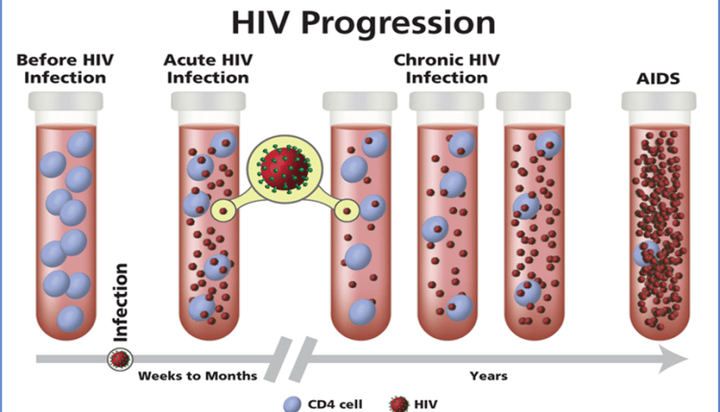
When discussing HIV (Human Immunodeficiency Virus), one of the most common concerns people have is how long the virus can remain infectious outside the human body. This concern is especially relevant in situations involving blood exposure, used needles, or contact with potentially contaminated surfaces. In this post, we’ll break down the facts about how long HIV survives outside the body and what it means for everyday life…..CONTINUE FULL READING>>>
🔬 How HIV Reacts to the Environment
HIV is a very fragile virus when exposed to air. Unlike some viruses that can survive for hours or even days on surfaces, HIV does not live long outside the human body. It quickly becomes inactive when exposed to air, heat, or drying.
Here’s why:
• HIV needs specific conditions—such as the environment inside the human body—to survive and replicate.
• Once outside the body, temperature, light, and air begin to break down the virus.
⸻
⏱️ How Long Can HIV Survive Outside the Body?
✅ On Dry Surfaces (like tables, doorknobs, or toilet seats):
• HIV becomes inactive within minutes to a few hours once exposed to air and dried.
• Studies show it cannot cause infection once dried out.
✅ In Blood Outside the Body (e.g., in a used syringe):
• HIV may survive up to 42 days inside a sealed syringe under ideal conditions (cool temperature, no exposure to air).
• This is why needle-sharing is a major risk for HIV transmission.
✅ In Water or Fluids:
• HIV can survive for a short period in fluids like blood or semen, but only under ideal lab-like conditions.
• In real-life situations, the risk from fluids on surfaces or in pools is extremely low.
⸻
⚠️ Key Takeaway on Risk of Transmission
HIV does not spread through casual contact or from touching surfaces. It is primarily transmitted through:
• Unprotected sex with an infected person
• Sharing needles or syringes
• From mother to child during childbirth or breastfeeding (if untreated)
• Blood transfusion (very rare now due to screening)
You cannot get HIV from:
• Touching dried blood or fluids
• Toilet seats
• Sharing utensils or cups
• Hugs, handshakes, or kisses (unless both parties have open sores and blood is exchanged)
⸻
🛡️ How to Stay Safe
• Always use protection during sex.
• Avoid sharing needles or sharp objects.
• Use gloves when cleaning up blood.
• Educate yourself and others with facts, not fear.
✅ Conclusion
HIV cannot survive long outside the human body, especially in open air. While it may live longer in certain conditions like inside syringes, the risk of transmission through environmental exposure is extremely low. Knowing the science helps reduce stigma and encourages safe, informed behavior…..CONTINUE FULL READING>>>
